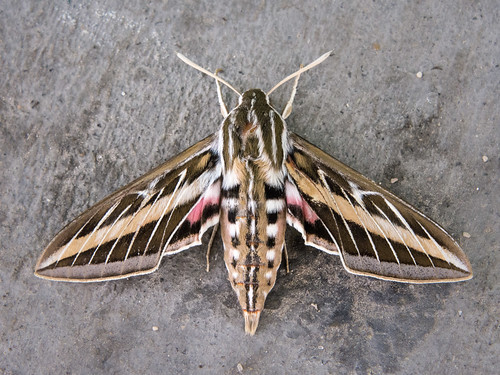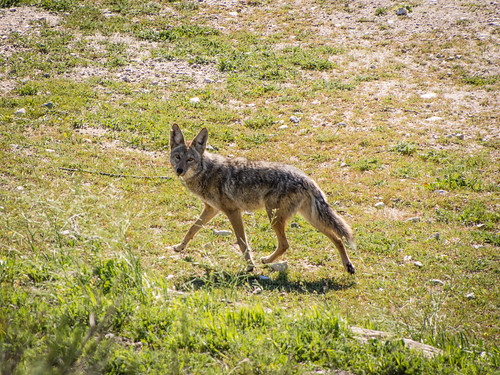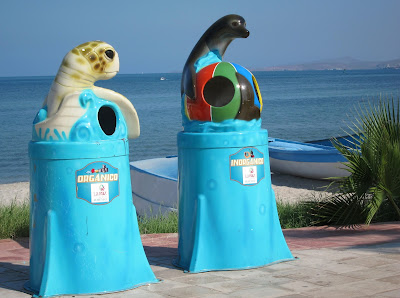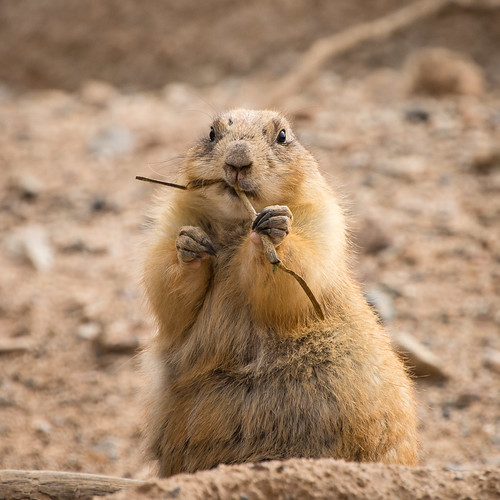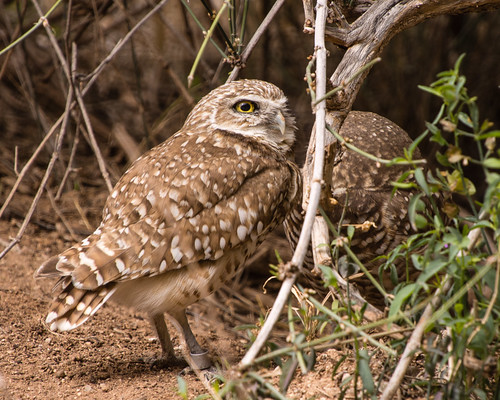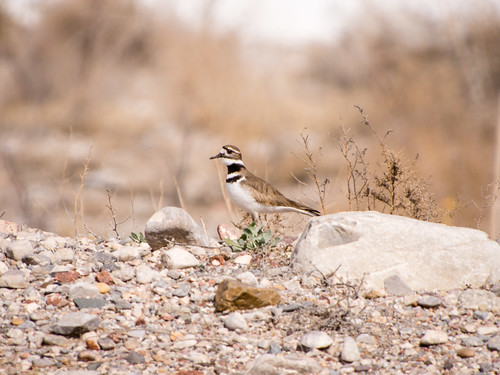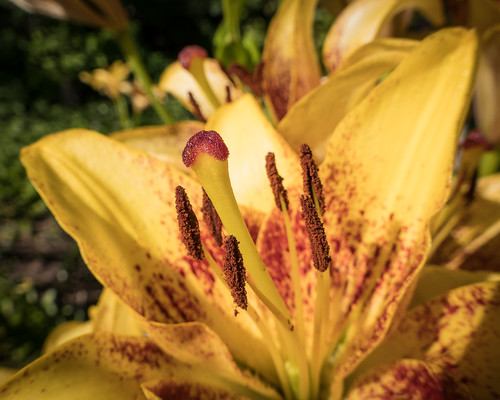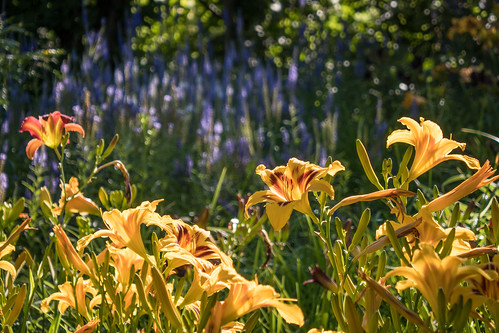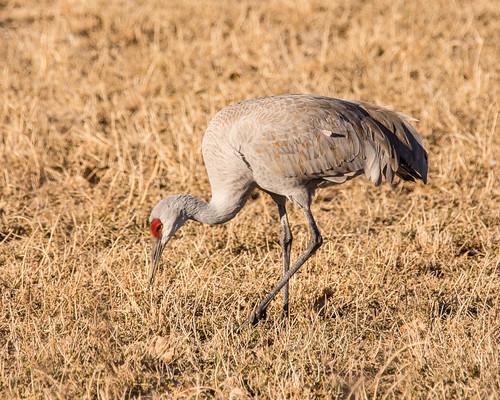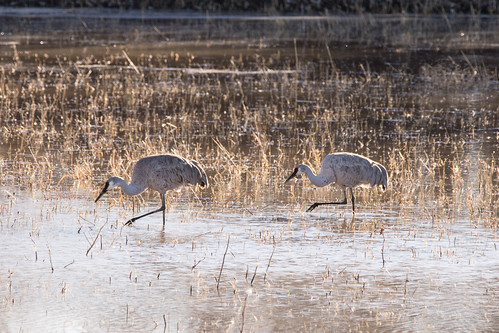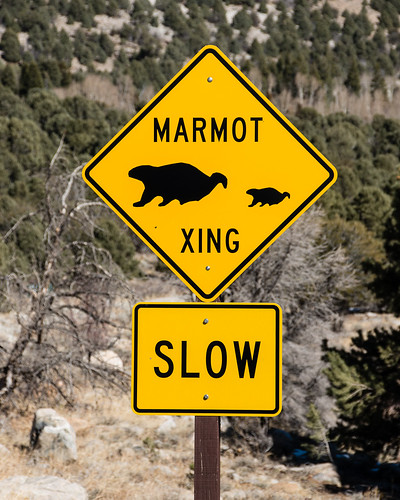Tuesday, 28 February 2017
EcoSask News, February 28, 2017
Upcoming Events
Living with Wildlife in our Backyards, Mar. 2 (webinar)
The Furbearers are offering a webinar on Living with Wildlife in our Backyards at 2 pm EST, Mar. 2.
Prairie Pride, Mar. 5 (Regina)
The South of the Divide Conservation Action Program (SODCAP) is presenting a short video highlighting the importance of ranching in providing habitat for species at risk at 5:30 pm, Mar. 5, in Regina.
Create a Hummingbird Friendly Garden, Mar. 9 (Saskatoon)
Lyndon Penner will share his passion for plants and hummingbirds at 7 pm, Mar. 9, at Wild Birds Unlimited.
Momentum, Mar. 10 (Saskatoon)
Momentum, the U of S student-led planning conference, on Mar. 10, will explore the nature of community health, including active transportation and food security.
Ecological Goods & Services Week, Mar. 12-18 (SK)
Saskatchewan Prairie Conservation Action Plan has organized a wide variety of activities during Ecological Goods & Services Week, Mar. 12-18.
Mar. 13, 12 pm – Understanding Carbon Storage & GHG Uptake in Grasslands (webinar)
Mar. 13, 3 pm – Pollination in the Prairies (webinar)
Mar. 13, 7 pm – Grassland Matters, Trevor Herriot (Regina)
Mar. 14, 12 pm – Value of Waterfowl Management to Native Prairie Conservation (webinar)
Mar. 15, 3 pm – ALUS Canada: Working with Farmers to Sustain Agriculture, Wildlife, and Natural Spaces (webinar)
Mar. 16, 12 pm – Value & Policy Considerations for Native Prairie Ecological Goods & Services (Saskatoon)
Mar. 16, 3 pm – Wetlands Got the Goods (webinar)
Looking Ahead
Ecological Literacy, Mar.– Nov. (Saskatoon)
Lichen Nature is offering a day-long monthly program starting Mar. 18 entitled Ecological Literacy: Reconnecting with the Land. More details are available on their Facebook page.
Prairie Bird ID Workshop, Mar. 25 (Regina)
SK PCAP is hosting a free Bird ID Workshop from 10 am – 4 pm, Mar. 25, in Regina. Space is limited so register early. The workshop will be followed by the AGM of the SK chapter of The Wildlife Society.
Introduction to Permaculture, Mar. 26 (Saskatoon)
Permaculture Saskatchewan is offering a one-day Introduction to Permaculture course on Mar. 26. Email info@permasask.ca if you would like to attend.
SENS @ 10, Apr. 1 (Saskatoon)
The School of Environment and Sustainability, U of S, is celebrating its 10th anniversary with a grand gala on Apr. 1. Guest speakers are Rosanna Deerchild and Dr. Thomas Lovejoy.
SK Association of Watersheds Conference & AGM, Apr. 5-7 (Esterhazy)
The Saskatchewan Association of Watersheds is holding its annual conference and AGM from Apr. 5-7 in Esterhazy. Topics range from groundwater and wetland mitigation to environmental procedures for potash mining and construction and urban beneficial management practices.
Earth Day Fun Run, Apr. 23 (Saskatoon)
The Saskatchewan Environmental Society is organizing an Earth Day Fun Run on Apr. 23 to support the Society. They're looking for volunteers and participants.
A full list of upcoming events can be found on the EcoFriendly Sask Calendar
In the News
A proposed “Green Network” in the area north of Saskatoon will protect natural habitats as well as provide protection against flooding
13 key questions to make sure that the Federal government’s “Clean Fuel Standard” isn’t simply a cosmetic exercise
Three ways you and your dogs can co-exist with wildlife
Tips for creating new habitat for wildlife on business campuses
EcoSask News is a weekly round-up of local news and events. Email us if you have items you would like us to include.
You can follow EcoFriendly Sask by liking us on Facebook, following us on Twitter, or by email (top right corner).
Labels:
Advocacy,
Fuel,
Grasslands,
Nature,
Permaculture,
University,
Urban,
Urban Planning,
Volunteers,
Water,
Wildlife
Thursday, 23 February 2017
Landfills, Organic Waste, and Recycling
Humans create mountains of garbage every year, and it’s expensive. Saskatoon’s landfill is running out of space. To close it down would cost approximately $26 million and opening a new site would cost tens of millions of dollars.
But there is another option. A recent report to a Saskatoon City Council committee stated that 77% of the material currently being discarded as trash could be diverted from the landfill. (In 2015, the City of Regina was only able to divert 21% of their waste from the landfill. Other cities do much better. In the same year, Surrey diverted 68% of its waste. Edmonton currently diverts more than 52% of its waste from the landfill.)
It’s Our Business
When a fire broke out at the Kindersley landfill site in 2013, the Mayor admitted that the town could have been more diligent and made the landfill site a higher priority, but “Who wants to invest in a landfill? It's the dump.”
Out of sight, out of mind is a common reaction until we’re forced to cope with a major fire or the cost of establishing a new landfill. There are no easy answers, but there are some important questions, and we need to start demanding answers from both municipal and provincial levels of government. We can also start recognizing and addressing our personal responsibilities.
Commercial Waste
Over 60% of municipal solid waste sent to Canadian landfills in 2014 came from non-residential sources but little is being done to assist businesses and institutions to decrease their waste.
Increased collaboration between government and industry stakeholders could achieve changes upstream by reducing packaging or establishing trial recycling projects.
What can we do to assist commercial and institutional operations in reducing and diverting their waste?
How can we encourage municipal, provincial, and federal governments to collaborate with industry stakeholders?
Waste Products with Market Value
There is a ready market for many waste products, such as concrete, shingles, and clean wood. Concrete is already being diverted from large demolition projects, but homeowners may not be aware that these materials can be sold or recycled.
The City of Saskatoon is considering setting up an expanded drop-off area for waste items with resale value to encourage diversion. Service providers would be engaged to look after selling the materials.
Every year, Canadians dispose of 6 million mattresses. Each one can take up as much as 40 cubic feet in a landfill. But as Re-Matt, Alberta’s mattress recycler discovered, over 95% of mattress components can be recycled and turned into usable products.
A 2014/15 State of Waste Management in Canada report recommended increased use of landfill bans targeting “materials where recycling technologies already exist and industry has demonstrated readiness for establishing a diversion program.”
How can we make it easier for residents and businesses to sell or recycle waste?
How can we support entrepreneurs and small businesses in identifying profitable uses for waste materials?
Organic Waste
Organic waste makes up the biggest portion of the material that could be diverted from Saskatoon’s landfill, but Saskatoon City Council has been reluctant to address a potentially divisive topic after all the controversy around curbside recycling.
Saskatoon’s current green bin program is maxed out with only 8,000 bins. How many more residents would like to be able to recycle garden waste but can’t until the program is expanded?
A 2015 report from the Canadian Biogas Association, the Compost Council of Canada, and the Ontario Waste Management Association recommends that we rethink organic waste: “This is not about simply diversion from disposal but driving value and quality from the output of these waste resources to enrich our crops and ensure the prosperity of our environment and economy.”
The City of Edmonton’s composting facility produces high-quality compost from 160,000 tonnes of organic waste and biosolids annually. The new high solids anaerobic digestion facility, expected to open in 2017, will expand processing capacity by 48,000 tonnes.
How can we as residents encourage and support our municipalities to collect organic waste?
What steps can be taken to collect commercial and institutional organic waste?
Can Saskatoon’s landfill gas and power generation system be expanded?
Landfill Standards and Inspections
There are 781 incorporated municipalities with over 500 landfills and yet there are only four inspectors to inspect, educate, and patrol them. 132 of the landfills were inspected in 2014/15; 73% were found to be non-compliant.
Education is a problem for many small landfills. They don’t know what is expected or how to comply. Cost is also an issue. South Corman Park was running a $100,000 annual deficit to run their landfill. They chose to sell it to a private company, Green Prairie Environmental.
Is the Government of Saskatchewan providing adequate support and guidance for municipal and regional waste management operations?
How do current regulations compare to those in other provinces?
What is the provincial government doing to regulate privately owned landfills?
What are the long-term implications for environmental and public health and safety (e.g. leaching) when sites are privately owned? Will for-profit companies attempt to do more than meet the minimal requirements? If not, will this lower the bar for municipally-owned landfills?
Individual Waste Reduction Efforts
Waste reduction efforts start at home. Two Victoria, BC, families are sharing the lessons they’ve learned, from zero waste laundry to zero waste birthdays. A recent blog post from the Saskatchewan Waste Reduction Council (SWRC) provides a useful list of the top three ways to start reducing waste.
Waste Not yxe is a Facebook group for Saskatonians “who are seeking to be conscious about their impact on and relationship with nature, in part through waste reduction.” They’re posting monthly challenges, such as reducing/eliminating single-use items.
SWRC’s Compost Coaches can help you turn organic waste into valuable compost. Their home composting webpage helps you identify what form of composting will work best for you.
Tuesday, 21 February 2017
EcoSask News, February 21, 2017
Upcoming Events
HABISask, Feb. 27 (webinar)
Ben Sawa, SK Ministry of Environment, will be giving a webinar about the new online mapping application HABISask – Hunting, Angling and Biodiversity Information of Saskatchewan – on Feb. 27 as part of SK-PCAP's Native Prairie Speaker series.
Greater Sage Grouse, Mar. 1 (Mankota)
Beatriz Preito, SK Conservation Data Centre, will talk about non-intrusive methods for monitoring greater sage grouse at 7:30 pm, Mar. 1, in Mankota, as part of SK-PCAP's Native Prairie Speaker series.
SES Solar Co-op, Mar. 1 (Saskatoon)
Jason Praski will provide an update on the activities of the Saskatchewan Environmental Society’s Solar Co-op at the Mar. 1 meeting of the Saskatchewan Energy Management Task Force.
Climate Change Resiliency & Hospitals, Mar. 2 (webinar)
The Canadian Coalition for Green Health Care is offering a Climate Change Resiliency webinar on Mar. 2. Two Canadian hospitals will share what they are doing to ensure they are more resilient to the impacts of climate change.
Cultivating Food Security, Mar. 3 (Regina)
Cultivating Food Security: How to Save Seeds & Grow Microgreens will take place from 6:30-9 pm, Mar. 3, at the Regina Floral Conservatory.
Climate Change Conversation, Mar. 4 (Pike Lake)
Rosetown Elrose NDP is holding a climate change forum along with their AGM at Pike Lake on Mar. 4. Three panelists will discuss policy, passive home construction, and solar power.
Lead Green Associate Training, Mar. 4 (Saskatoon)
The U of S Office of Sustainability is offering a half-day Lead Green Associate Training on Mar. 4 with reduced rates for students. The course is designed to help students obtain certified knowledge of the green building industry.
Big Bike Adventure Hunt, Mar. 5 (Saskatoon)
Bike Doctor Detours is hosting a bike adventure hunt on Mar. 5 for teams or father/daughter, mother/son duos.
Saskatoon Nature Society Field Trips
Feb. 25, 1-3 pm – Weir and City Park Birding
Mar. 4, 9 am-5 pm – Gardiner Dam Field Trip
Mar. 12, 1:30-5 pm – Pike Lake Birding
Check the Saskatoon Nature Society’s website for full details and updated information.
Nature Regina Field Trips
Mar. 11, 10 am-noon – Wascana Winter Birds and Wildlife
Check Nature Regina’s website for full details and updated information.
A full list of upcoming events can be found on the EcoFriendly Sask Calendar
In the News
“When we subsidize roads, socialize the costs of pollution, crashes and parking, and even legally require that our communities be built in ways that make it impossible to live without a car, we send people strong signals to buy and own cars and to drive—a lot.”
“We’ve worked so hard to professionalize science, but then scientists became the elite and isolated. Now [science] is returning the power back to the public.”
Fleece microfibers make up 85 percent of beach pollution. But how you wash your clothes can change everything.
EcoSask News is a weekly round-up of local news and events. Email us if you have items you would like us to include.
You can follow EcoFriendly Sask by liking us on Facebook, following us on Twitter, or by email (top right corner).
Labels:
Agriculture,
Birds,
Citizen Science,
Climate Change,
Clothes,
Construction,
Cycling,
Gardens,
Hospital,
Regina,
Saskatchewan,
Saskatoon,
Solar,
Transportation,
University
Tuesday, 14 February 2017
EcoSask News, February 14, 2017
Upcoming Events
Bird Walks, Feb. 17-20 (Regina)
Join Nature Saskatchewan for a bird walk during the Great Backyard Bird Count, Feb. 17-20. Walks will take place daily in different locations.
The Importance of Important Bird Areas, Feb. 20 (Regina)
Marla Anderson, Nature Saskatchewan, will discuss the importance of Important Bird Areas while focusing on the criteria for the designation of an IBA at the Feb. 20 meeting of Nature Regina.
Policy Approaches to Climate Change, Feb. 21 (Saskatoon)
Ann Coxworth and Hayley Carlson will review policy approaches to climate change, exploring the costs of carbon pricing versus flexible regulations at 7 pm, Feb. 21, at the Frances Morrison Library, as part of the Sustainable Speaker Series.
Cycling Bylaw Review, Feb. 22 (Saskatoon)
Saskatoon Cycles has undertaken a significant review of the Bicycle Bylaw and would like your feedback at an Open House from 5-7 pm, Feb. 22, before submitting to City Council.
Predator-Prey Tracktacular, Feb. 22 (Regina)
Join Wascana Centre ecologist Sarah Turkeli for a free animal tracking program from 1-3 pm, Feb. 22. Registration, for 8-13 year olds, is limited so email ecologist@wascana.ca or call (306) 522-3661 if you’re interested.
IceCycle Fundraiser, Feb. 25 (Saskatoon)
Go for a bike ride and over dinner listen to Filipi Gomez describe riding his bike from Chile to the Arctic with his bass guitar at the IceCycle Fundraiser from 5-9 pm, Feb. 25.
Intermediate Bird Watching Course, Feb/Mar (Regina)
A 5-week intermediate bird watching course is being offered on Monday evenings (Feb. 27; Mar. 6, 13, 20 & 27). You’ll learn to recognize all the groups of birds found in southern Saskatchewan and cover specific species from each group in detail. Pre-registration is required with a class limit of 25. Call 306-581-6819 or email SKatlasReg8@gmail.com.
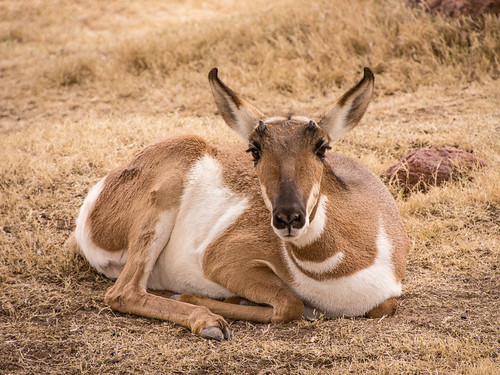 |
| The Baja Pronghorn is critically endangered with less than 200 left in the wild (El Paso Zoo) |
Looking Ahead
Winter Camping with Sled Dogs, Mar. 3-5 (Great Blue Heron Provincial Park)
Join SaskOutdoors for winter camping in Great Blue Heron Provincial Park, Mar. 3-5, and spend two days skiing and learning to run a dog sled team.
Compost Coach Training Camp, Mar. 4-5 (Saskatoon)
Learn advanced composting techniques and help more people get involved in composting by taking the two-day compost coach training camp offered by the Saskatchewan Waste Reduction Council.
Winter Camping Skills Workshop, Mar. 11-12 (Prince Albert National Park)
Join SaskOutdoors for a winter camping skills workshop, Mar. 11-12, Prince Albert National Park.
A full list of upcoming events can be found on the EcoFriendly Sask Calendar
On Campus
The University of Saskatchewan has established a Speakers’ Bureau. Faculty, graduate students, and researchers have offered to speak free of charge. Topics include: bats, beavers, farmland moose, SK species at risk, solar cells, and sustainability at the U of S.
The University of Saskatchewan has received recognition for its sustainability initiatives.
EcoSask News is a weekly round-up of local news and events. Email us if you have items you would like us to include.
You can follow EcoFriendly Sask by liking us on Facebook, following us on Twitter, or by email (top right corner).
Labels:
Advocacy,
Birds,
Camping,
Climate Change,
Composting,
Cycling,
Policy,
Regina,
Saskatoon,
University,
Wascana,
Wildlife,
Winter
Monday, 13 February 2017
Seedy Saturday in Saskatchewan 2017
Seedy Saturday 2017
Churchbridge – Feb. 18
Regina – March 4
Swift Current - March 4 (Little Sprouts and Introduction to Seed Saving)
Moose Jaw – Mar. 5
Yorkton – March 11
Indian Head – Mar. 12
North Battleford – March 25
Saskatoon – April 1
Prince Albert – April 22
Additional information is available on the Seeds of Diversity website.
You may also be interested in the following events:
Compost Coach Training Camp, Mar. 4-5 (Saskatoon)
Learn advanced composting techniques and help more people get involved in composting by taking the two-day compost coach training camp offered by the Saskatchewan Waste Reduction Council.
Cultivating Food Security, Mar. 3 (Regina)
Cultivating Food Security: How to Save Seeds & Grow Microgreens will take place from 6:30-9 pm, Mar. 3, at the Regina Floral Conservatory.
Healthy Yards for Prairie Gardeners, Mar. 21 (Saskatoon)
Adrian Werner, Lisa Howse, and Shannon Dyck will discuss how to create a beautiful, sustainable and productive garden, from home composting and water conservation to native plants and pesticide reduction at 7 pm, Mar. 21, at the Frances Morrison Library as part of the Sustainable Speaker Series.
Introduction to Permaculture, Mar. 26 (Saskatoon)
Permaculture Saskatchewan is offering a one-day Introduction to Permaculture course on Mar. 26. Email info@permasask.ca if you would like to attend.
You can follow EcoFriendly Sask by liking us on Facebook, following us on Twitter, or by email (top right corner).
A full list of upcoming events can be found on the EcoFriendly Sask Calendar
Sunday, 12 February 2017
Ecology Camp for Kids, Saskatoon
Ecology Camp for Kids received an EcoFriendly Action Grant in 2016. They reported back on their activities:
"Establishing a lifelong passion and reconnecting children to the great outdoors through inquiry and experiential learning is the main goal of Ecology Camp for Kids. We strive to provide children with quality information, highlighting important regional habitats, species and issues, as well as encouraging an interest in science, nature, and conservation.
"Thanks to EcoFriendly Sask’s generous donation of $500 this summer, we have been able to provide campers with these authentic learning moments, using the natural environments we have visited to create a sense of authenticity, belonging, ecology, and conservation within the minds of the children we have had the pleasure of educating.
"We have created these learning moments through activities such as, but not limited to: pond dipping, hiking, bird watching/feeding, bug catching/releasing, solo-time, team-building games, and by making observations through microscopes.
"At Ecology Camp for Kids we also have a philosophy that we live and learn by: everyday field trips. With the use of your donation we have visited, explored, and learned new knowledge about locations such as the Saskatoon Forestry Farm, Park & Zoo; Chappell Marsh; Saskatoon Natural Grasslands; the Northeast Swale; Wanuskewin Heritage Park; Pike Lake; Saskatoon Watershed Splash Park; Beaver Creek Conservation Area; and numerous other locations within and outside of the Saskatoon city limits.
"Without your donation, Ecology Camp for Kids may not have been able to run as well as we did this summer, so for that we thank you again. Your donation was greatly appreciated and put to good use educating the young minds of tomorrow."
Ecology Day Camps for Kids are offered during February, Easter, and summer school breaks for kids from 8-11 plus one Junior Leader from 12-17. There's still time to register for the Easter Break Rainforest Ecology camp, but hurry as space is limited.
In-school environmental workshops for teachers and their K-8 students are offered throughout the year. Classes can also participate in guided wetland and grassland field trips. Free guided field trips for grade 4-6 are sponsored by Ducks Unlimited Canada and SaskPower.
EcoFriendly Action Grants support local projects that will reduce or prevent damage to the environment.
Tuesday, 7 February 2017
EcoSask News, February 7, 2017
Upcoming Events
Seed: The Untold Story, Feb. 15 (Saskatoon)
Permaculture Saskatchewan is hosting a showing of Seed: The Untold Story from 6:30-8 pm, Feb. 15.
Let’s Talk Solar, Feb. 15, 16, 22, 23 (SK)
SaskPower is holding workshops in 4 communities to obtain input on how SaskPower can support solar power generation for residential, small and medium businesses, and communities in Saskatchewan. For further information, email solarconversation@saskpower.com.
Feb. 15 - Estevan
Feb. 16 - Regina
Feb. 22 - Saskatoon CANCELLED DUE TO PROVINCIAL BY-ELECTION
Feb. 23 - Swift Current
Beavers and Water, Feb. 16 (Saskatoon)
Cherie Westbrook will discuss beavers and the important role they play in regulating water flow at the Feb. 16 meeting of the Saskatoon Nature Society. Saskatoon Nature Society meetings are held monthly at 7:30 pm in Room 106, Biology Building, University of Saskatchewan.
Oxen to Oil, Feb. 15 – Mar. 16 (Saskatoon)
A photography series by Valerie Zink, taken during the height of Saskatchewan’s recent economic boom, considers the complex relationship between rural communities and the oil industry. It will be on display in the Gallery at Frances Morrison Library from Feb. 15-Mar. 16.
Burrowing Owls, Feb. 16 (webinar)
Corey Scobie, Government of Alberta, is offering a webinar about the influence of human development on burrowing owl habitat selection and reproductive success at noon on Feb. 16 as part of SK-PCAP’s Native Prairie Speaker series.
Great Backyard Bird Count, Feb. 17-20 (SK)
Join the Great Backyard Bird Count, Feb. 17-20, by tallying the number and kinds of birds you see.
Looking Ahead
Conservation Awareness & Appreciation Supper, Feb.23 (Shaunavon)
Nature Saskatchewan is hosting a Conservation Awareness & Appreciation Supper in Shaunavon on Feb. 23. Meet a live burrowing owl and receive updates on the Stewards of Saskatchewan program. RSVP by Feb. 15.
Fire & Ice Winter Festival, Mar. 4-5 (Ness Creek)
The second annual Fire & Ice Winter Festival is being held at Ness Creek Mar. 4-5. Enjoy skiing, snow sculpting, and sleigh rides.
SustainTech, Mar. 16 (Saskatoon)
The SustainTech conference, featuring technologies and practices that promote sustainability and environmental responsibility, will be held in Saskatoon on Mar. 16.
A full list of upcoming events can be found on the EcoFriendly Sask Calendar
In the News
Evaluating pipelines - Will it move us towards a more promising future?
“We settled the prairies by draining them and now we need to put [wetland] features back on the landscape that allow us to retain and manage the water that drains off”
“We are selectively determining which species [animals and plants] can live in cities”
A guide to solar roof tiles - the next big thing
The Saskatchewan Breeding Bird Atlas is a five-year project teaming citizen scientists with professionals to deliver a province-wide account of the distribution and relative abundance of populations of breeding birds. You’re invited to participate if you have some experience and familiarity with how to identify birds. You don’t need to be an expert, but you do need to be confident in the identification of the birds that you report.
Photographs: Sandhill Cranes enjoying the winter sunshine in Bosque del Apache Wildlife Refuge, New Mexico (Andrew McKinlay)
EcoSask News is a weekly round-up of local news and events. Email us if you have items you would like us to include.
You can follow EcoFriendly Sask by liking us on Facebook, following us on Twitter, or by email (top right corner).
Labels:
Agriculture,
Beavers,
Birds,
Conferences,
Energy,
Photography,
Renewable Energy,
Solar,
Urban,
Water,
Wetlands,
Winter
Monday, 6 February 2017
Making Roads Safer for Wildlife
Vehicles hit an estimated 1-2 million animals every year in the United States – and that is only reported collisions. In addition, roads fragment wildlife habitat, of particular concern for migratory animals or reptiles and amphibians that move annually from hibernation to breeding sites.
Saskatoon’s Northeast Swale
The Northeast Swale Watchers are very concerned about the number of road crossings that are planned within the Northeast Swale. They had hoped to stop new roads from being built but have begun to feel that they are inevitable and are instead focusing their energy on mitigating their impact.
“If they are going to build this thing (Saskatoon Freeway), you have to consider optimal design for wildlife,” says Louise Jones.
At the February 3, 2017, meeting of the board of the Meewasin Valley Authority the application by Graham Commuter Partners to construct the new McOrmond Drive and related stormwater infrastructure through the Northeast Swale was approved subject to a number of provisions, including:
- Third party ecological monitor on site once per day when work is taking place – weekly reports submitted to Meewasin
- Submission of wildlife movement design
- Submission of a landscape restoration plan and specifications including establishment and long term management and interim landscape/erosion plan
- Monitoring of water quality and quantity entering the NE Swale at all outlet points
It will be extremely interesting to see the company’s submission on wildlife movement design. One can only hope it will consider some of the following measures that have proven successful elsewhere.
Overpasses, Underpasses & Fences
Banff National Park has a total of 44 wildlife crossings (6 overpasses and 38 underpasses) and 82 km of highway fencing. 152,514 animals from 11 different species have used the crossings in the past 17 years and wildlife fatalities have dropped by over 80%.
The People’s Way, a 56-mile section of US Highway 93 North in Montana “represents the most extensive wildlife-sensitive highway design effort in the United States.” It includes 41 fish and wildlife crossing structures, 18 miles of fencing, 16 jump-outs, and numerous wildlife crossing guards. Over 53,600 wildlife uses by 30 species were documented between 2010 and 2012.
Wildlife Detection Systems
The BC Ministry of Transportation is testing two wildlife detection systems to prevent elk and deer collisions between Cranbrook and the Alberta border. The system will use radar and thermal cameras to trigger flashing warning signs when large animals approach the highway.
Road Closed for Egret Hatchlings
Both Great and Snowy Egrets call Google’s Mountain View campus home. Every year they return to raise their young in the noisy Shorebird Way colony. Since 2005, a section of the road is closed to cars during breeding season to ensure that hatchlings that fall out of the nest aren’t run over. In addition, Google doesn’t use poison to kill rodents (a favorite egret snack), and provides financial support to local groups that monitor the egret colonies.
Further Information
Rise in Roadkill Requires New Solutions
What Can Highway Managers Do?
10 Cool Wildlife Crossings (from crabs, toads, and salamanders to wild boar and elephants)
Ecology at Google Brings Holistic Design to our Outdoor Environments
Subscribe to:
Posts (Atom)
